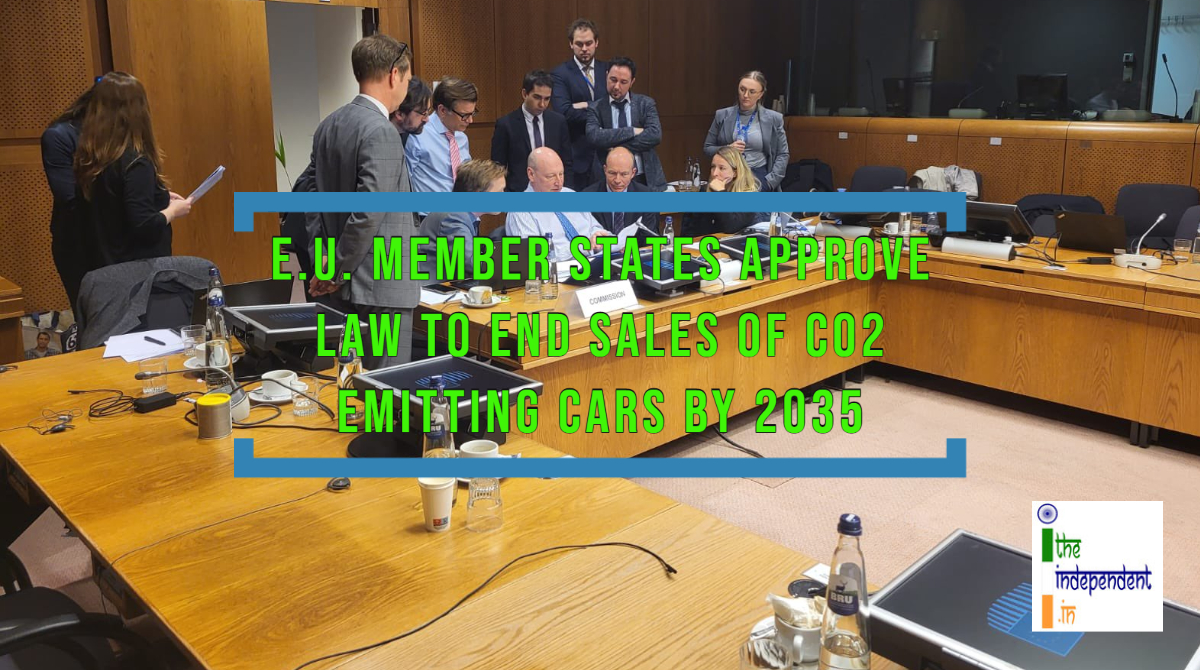
The EU law will require all new cars to have zero CO2 emissions from 2035, and 55% lower CO2 emissions from 2030, versus 2021
The European Union (E.U.) Member States have approved a landmark law to end sales of CO2 emitting cars by 2035.
While Poland voted against the law, Italy, Bulgaria and Romania abstained. The agreement was delayed for weeks after Germany called for an exemption for cars running on e-fuels. The e-fuels are argued to be carbon neutral because they use captured CO2 emissions to balance out the CO2 released when the fuel is combusted in an engine.
The approval from the E.U. countries’ Energy Ministers means Europe’s main climate policy for cars can now enter into force.
The new E.U. law will require all new cars sold from 2035 to have zero CO2 emissions and 55% lower CO2 emissions from 2030, as compared to 2021 levels. The targets are designed to drive the rapid decarbonisation of new car fleets in Europe.
The new law is expected to make it impossible to sell internal combustion engine cars in the E.U. from 2035. However, the exemption won by Germany will now help those with traditional vehicles, even though e-fuels are not yet produced at scale.
Taking it to twitter, the Executive Vice-President for the European Green Deal – Frans Timmermans tweeted,
With @EUCouncil’s final vote today the EU has taken an important step towards zero-emission mobility.
— Frans Timmermans (@TimmermansEU) March 28, 2023
The direction is clear: in 2035 new cars and vans must have zero emissions. It brings a big contribution to climate neutrality by 2050 and is a key part of the #EUGreenDeal.
According to the European Commission, passenger cars and vans are responsible for about 12% and 2.5% respectively of total E.U. emissions of CO2. Earlier this month, the United Nations (U.N.) warned that the world was likely to miss a target for limiting the rise in global temperatures to 1.5 degrees Celsius.
Porsche and Ferrari are among the supporters of e-fuels, which they see as a way to avoid their vehicles being weighed down by heavy batteries. But other carmakers including Volkswagen, Mercedes-Benz and Ford will use electric vehicles to decarbonise.
In autumn 2023, the European Commission will propose how sales of e-fuel-only cars can continue after 2035. Such cars will have to use technology to prevent them from starting when filled with petrol or diesel.
Separately, the E.U. Energy Ministers also agreed to extend a voluntary target to curb their gas use by 15% for 12 months, to help prepare for next winter with scarce Russian gas.







